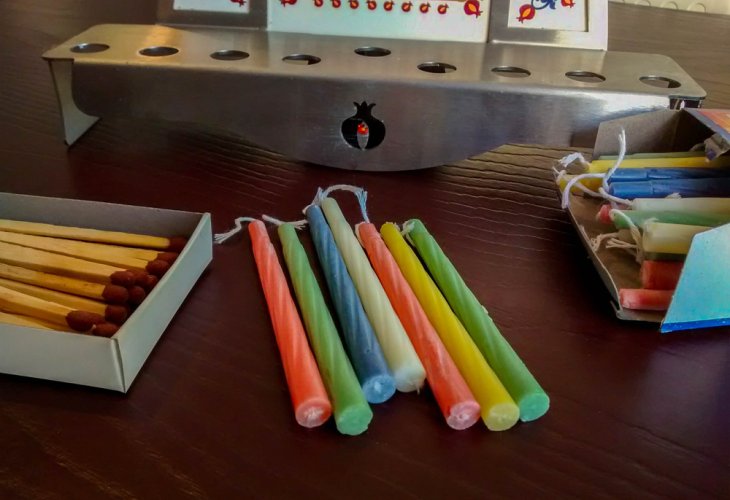The Holocaust
How Holocaust Survivors Taught Their Children to Embrace Torah with Joy
Passing on a legacy of faith, resilience, and joyful observance from the Holocaust to future generations
 (Photo: shutterstock)
(Photo: shutterstock)Rabbi Meir Jungreis, son of Holocaust survivors and mashgiach (spiritual supervisor) at the Or LeYesharim yeshiva in Beit Shemesh, was once asked how he and his family managed to grow up as devout, Torah-observant Jews in a society that often lived otherwise. How did all the children, grandchildren, and great-grandchildren of his parents, Rabbi Moshe Aharon and Miriam Chaya Jungreis, become dedicated to Torah despite their surroundings?
His answer was clear: “By fulfilling mitzvot with joy, wholeheartedly, just as my parents did.”
A Chanukah Miracle in the Camps
Rabbi Jungreis recounted: “When my father lit the Chanukah candles, both he and my mother would wipe tears of emotion while reciting the blessing Shehecheyanu. They wept with excitement. When we entered the sukkah, it was with joy. When we ate matzah, my father would recall how in Buchenwald he ate a small piece of matzah that had been baked with supreme self-sacrifice.”
His mother often told her children her personal Chanukah miracle. She had been forced to work in a munitions factory during the war. A non-Jewish woman sat near her, receiving wages, while she, as a Jewish prisoner, received nothing. They struck a deal: Jungreis’ mother secretly slipped parts into the woman’s box, who turned them in for payment. In return, the woman would secretly give her small amounts of food — a little beer, margarine, or a slice of bread.
When Chanukah approached, Jungreis’ mother asked for something different: a candle and a box of matches. The woman was puzzled, but she managed to provide them. On the first night of Chanukah, she gathered the women in her barracks, recited the three blessings with trembling and emotion, and lit the first candle.
Suddenly, the SS guard opened the door. Terror froze the room. Jungreis’ mother was sure she would be shot on the spot. She quickly accepted responsibility, stepping forward: “I lit the candle. It was because of the lice. We are plagued by them, and I hoped the flame would drive them away.”
It was a flimsy excuse — and everyone knew it. But miraculously, the guard merely warned her never to light a flame again and left. Jungreis’ mother, who later told the story with a bitter laugh, said that in that moment she made a vow: if she survived, she would recite Psalm 120 before going to sleep every night of her life.
A Secret Megillah in Buchenwald
Rabbi Jungreis shared a story about his father. In Buchenwald, his father managed to find a piece of paper and a pencil. With an extraordinary memory, he wrote down the entire Book of Esther, word for word, from memory. On Purim night, he gathered dozens of prisoners around him and quietly read the Megillah, fulfilling pirsumei nisa — the publicizing of the miracle — in the darkest place of divine concealment.
“How Could You Say Shehecheyanu in Auschwitz?”
Later, Rabbi Jungreis asked his father: “Where did you get the strength? How could you cling to God when you were surrounded by death and suffering? When your family was wiped out, when you were beaten and starved, how could you still bless God with Shehecheyanu?”
His father looked at him, almost puzzled by the question: “What do you mean, how? That’s what we were created for. To fulfill our role. God tests us, and our task is to withstand the test, to continue keeping the mitzvot and studying Torah with joy.”
This spirit of serving God with joy no matter the circumstances, became the defining trait of his parents’ lives, and, as Rabbi Jungreis concludes, “that was the secret of their education, both for their generation and for ours.”

